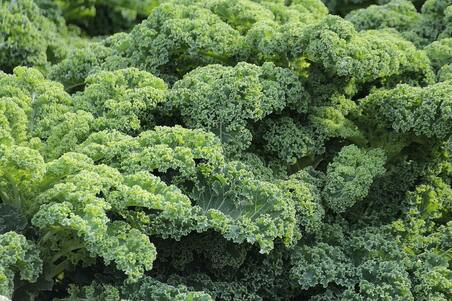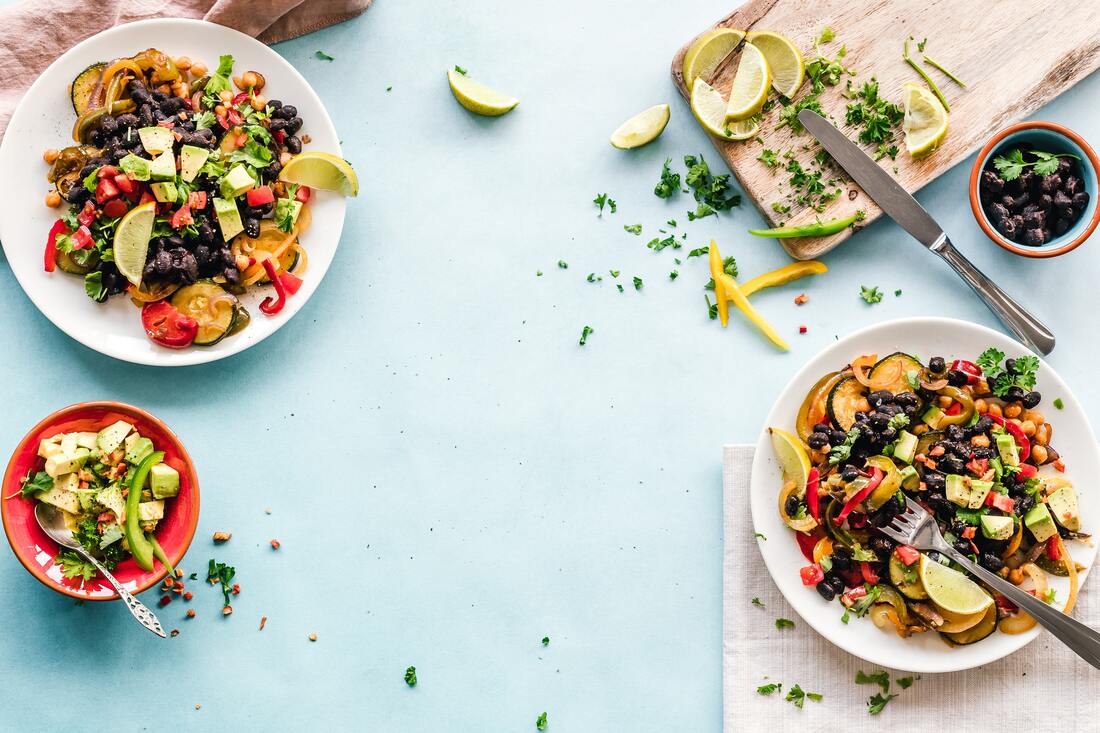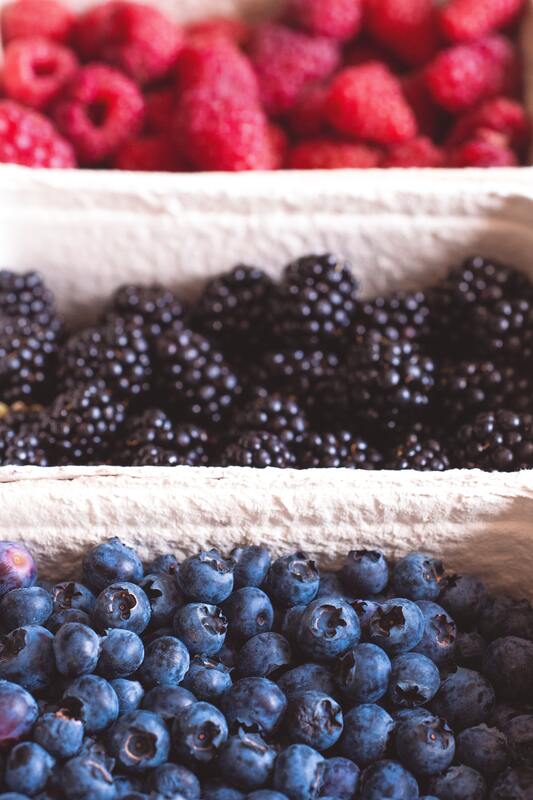
The start of this year seemed like a rush of open learning for me, I somehow had more of an insatiable urge to learn new things. I've always been a reader and researcher, but this new energy seemed amplified, a calling.
I don't just want to know all the new research that comes out in the field of nutrition, I somehow want to have an insight into learning a new language, a deeper understanding of quantum biology, and particle physics, and....
I find myself searching out knew knowledge like New Yorkers looking for cab, so I go with the flow so to speak. Flagging new resources to occupy my spare time, but as a business owner, there doesn't ever seem to be enough of it..
I also ask myself in the holistic model, am I getting everything I need to support brain health?
I eat a well rounded, whole foods plant-based diet with plenty of whole grains legumes and nuts. Ample amounts of veggies, and small inclusions of nuts, berries, healthy fats, and algaes, yep algaes.
But what foods do we really need for a healthy brain?
Even though the majority of the brain’s food is glucose, it relays on more than just sugar! There are many nutrients that the brain needs to thrive and function properly, and as it is part of a whole, the quality of the “glucose” we are feeding it is important.
I'm not a proponent of keto diets, so even though the brain does seem sufficiently feed by ketone bodies in the short term, there is no long-term science base evidence that support this diet is good for the brain or the whole body on a long term basis, so I will keep my focus on an abundant whole foods spectrum.
As the brain is part of a whole, a brain healthy diet should start with a wholesome well-rounded diet that includes a lot of vegetables, fruits, legumes, and whole grains. These are all healthy whole foods carbohydrates that support energy and metabolism without adding extra processing to raise GI of these foods.
Greens
Some of the best veggies to include are the dark leafy greens like kale, collards (one of my favs) and spinach. The dark leafy greens make sure you are getting sufficient folate and other B vitamins alongside vitamins C and K and the minerals iron and calcium. These types of veggies are packed full of antioxidants supportive of brain health and a healthy body.
We might also want to include broccoli into that dark leafy green mix. Broccoli is a source of two crucial nutrients that help improve brain function. Vitamin K helps to strengthen cognitive abilities while choline has been found to improve memory and slow cognitive decline. (1)
Omega 3s
Omega-3 sources such as flaxseeds, avocados, spirulina, and walnuts are a great source of omega 3s. Walnuts are especially high in a type of omega-3 fatty acid called alpha-linolenic acid (ALA), which helps lower blood pressure and protects arteries. That's good for both the heart and brain. EPA and DHA are both well known omega 3 fatty acids that are beneficial to brain health, both seem to be equally effective in making powerful anti-inflammatory eicosanoids known as resolvins.
Cold water fish is promoted to be a great source of these omega 3 fatty acids, but as the oceans are becoming more and more polluted with heavy metals, plastics, and other bio-accumulative toxins, fish may not be the best sources of these nutrients anymore. In theory the fish have high amounts of EPA and DHA and could be healthful, but in reality more and more researchers find higher levels of toxic chemicals and heavy metals found in cold water fish stocks, and have as much risk as proposed protection.(2)
Even though the body needs to convert the plant-based ALA into its forms of EPA and DHA respectively, science and evolution should be able to take on those conversion models easily. Despite having significantly lower intakes of EPA and DHA, a study in the published in the American Journal of Clinical Nutrition, found blood levels of vegan and vegetarian with very low to no intake of fish had approximately the same levels as those who consumed fish regularly. (3)
The results indicate that those who do not get adequate amounts of dietary EPA and DHA have upregulated metabolism of converting ALA to EPA and DHA. This is dependent on how much dietary ALA there is to be converted, which brings me back around to walnuts, hemp and chia seeds, and the amazing flax seed! Eat them often.
Many vegans and vegetarians will use a vegan Omega 3 supplement in the form of a DHA/EPA Algae oil. This is the long chain Omega 3’s in a concentrated form direct from the source (algae), cutting out the middleman (fish). If supplementing, look for one with EPA (60-130mg) & DHA (120-250mg).
Berries are Another Great Brain Food.
The link between berries, especially blueberries, and the brain has grown out of observations that people who eat lots of fruits and vegetables over their lifetime have a lower risk of dementia. Scientists have singled in on one particular class of chemicals found in plant foods, called flavonoids, that may be the ‘active ingredient’ that could be protecting the brain from damage.
One group of flavonoids, called anthocyanidins, have been getting even more attention because of their antioxidant and anti-inflammatory properties. Anthocyanidins are abundant in berries and give these foods their bright blue, red and purple colours.
How anthocyanidins in berries benefit for the brain? The high amounts of antioxidants in blueberries may be one way they help protect brain cells from damage. These berry compounds also change the way that neurons in the brain communicate in pathways involved in inflammation and cell survival. (4) Yet more research has shown that berries can also improve cognition, motor control and enhance neuroplasticity.
Herbs and Spices
Some herbs and spices are a great inclusion to the diet to promote brain health. One of these superpowers of the plant world that I write about often is Turmeric. The main plant compound that is so beneficial to the brain and the body is curcumin, a polyphenol, which in one study published by the Journals Biochimica et Biophysica Acta (BBA) - Molecular Basis of Disease. The study concluded that curcumin enhances the synthesis of DHA from its precursor, α-linolenic acid. Another great reason to incorporate more of it into the diet. Check out this yummy Turmeric Chai recipe and read more about this amazing spice here.
There are so many delights from the earth that support better brain function and help memory, but its more than what you eat.
It’s not just what we're eating, there are a few things that we might want to avoid consuming for better brain health. Try;
- Limit the intake of processed foods and deep-fried foods rich in trans fats and omega-6 fatty acids that promote inflammation.
- Avoiding larger amounts of saturated fats.
- Limit alcohol intake.
Exercise has also shown to promote better brain function, especially with problem solving as well as memory. It doesn't exactly matter what you do for exercise as long as you get active, and stay active.
All the health and happiness to you in this New Year with all your endeavours, stay engaged, stay happy!
~R
References;
1) https://www.health.harvard.edu/mind-and-mood/foods-linked-to-better-brainpower
2)https://www.nationalgeographic.com/magazine/2018/06/plastic-planet-health-pollution-waste-microplastics/
3) https://academic.oup.com/ajcn/article/92/5/1040/4597496
4) pubs.acs.org/doi/abs/10.1021/jf2036033

